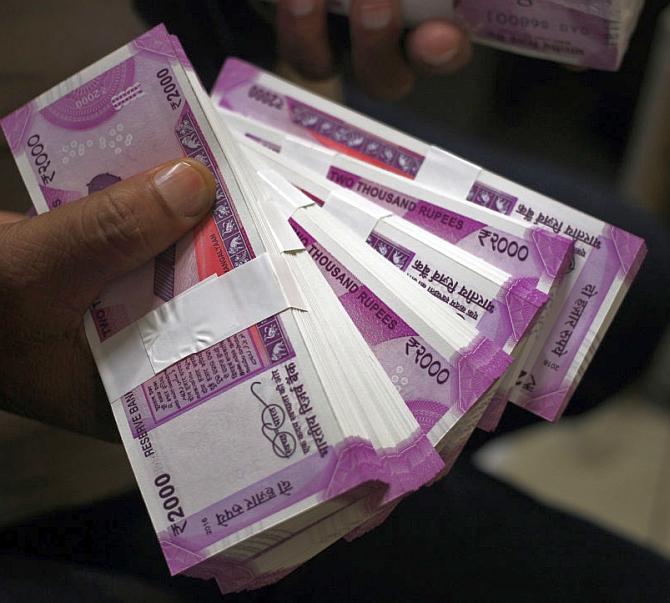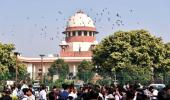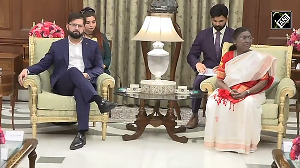Holding that the electoral bonds scheme was not fool-proof, the Supreme Court said on Thursday that information about funds received by a political party is essential for voters to exercise their freedom to vote effectively.

A five-judge Constitution bench headed by Chief Justice D Y Chandrachud did not agree with the Centre's submission that a political party, which receives contributions, does not know the identity of the contributor because neither the bond would have their name nor would the bank disclose such details to it.
In a landmark judgment, the apex court annulled the 2018 scheme on Thursday, terming it "unconstitutional", and ordered disclosure of names of purchasers, value of bonds and the recipients.
"The scheme is not fool-proof. There are sufficient gaps in the scheme which enable political parties to know the particulars of the contributions made to them," Justice Chandrachud, who penned the verdict for himself and on behalf of Justices B R Gavai, J B Pardiwala and Manoj Misra, said.
Justice Sanjiv Khanna wrote a separate verdict and gave different reasons for concurring with the judgment authored by the CJI.
Justice Chandrachud said in his verdict that according to the data on contributions made through electoral bonds, 94 per cent of the donations have been made in the denomination of Rs 1 crore.
The bench noted electoral bonds provide economically resourced contributors, who already have a seat at the table, selective anonymity vis-a-vis the public and not the political party.
"In view of the above discussion, we are of the opinion that the information about funding to a political party is essential for a voter to exercise their freedom to vote in an effective manner," it said.
"The electoral bond scheme and the impugned provisions to the extent that they infringe upon the right to information of the voter by anonymising contributions through electoral bonds are violative of Article 19(1)(a) (of the Constitution)," the bench said.
It said the Constitution guarantees political equality by focusing on the 'elector' and the 'elected'.
"However, political inequality continues to persist in spite of the constitutional guarantees. One of the factors which contributes to the inequality is the difference in the ability of persons to influence political decisions because of economic inequality," it said.
The bench noted that in a politically equal society, the citizens must have an equal voice to influence the political process.
"We have already in the preceding section elucidated the close association of money and politics where we explained the influence of money over electoral outcomes. However, the influence of money over electoral politics is not limited to its impact over electoral outcomes. It also spills over to governmental decisions," it said.
The top court said it must be recalled that legal regime in India does not distinguish between campaign funding and electoral funding.
"It is in light of the nexus between economic inequality and political inequality, and the legal regime in India regulating party financing that the essentiality of the information on political financing for an informed voter must be analysed," the bench said.
It said economic inequality leads to differing levels of political engagement because of the deep association between money and politics.
"At a primary level, political contributions give a 'seat at the table' to the contributor. That is, it enhances access to legislators. This access also translates into influence over policy-making," it noted.
"An economically affluent person has a higher ability to make financial contributions to political parties, and there is a legitimate possibility that financial contribution to a political party would lead to quid pro quo arrangements because of the close nexus between money and politics," the top court said.
It said quid pro quo arrangements could be in the form of introducing a policy change or granting a license to the contributor.
"The money that is contributed could not only influence electoral outcomes but also policies particularly because contributions are not merely limited to the campaign or pre-campaign period. Financial contributions could be made even after a political party or coalition of parties form government. The possibility of a quid pro quo arrangement in such situations is even higher," the bench said.
It said information about political funding would enable a voter to assess if there is a correlation between policy making and financial contributions.
The bench said to establish the argument of quid pro quo arrangements between the contributor and the political party, it is necessary that the political party has knowledge of the particulars of funding to it.
"The political party to whom contributions are made cannot enter into quid pro quo arrangements if it is unaware of the donor," it said.












 © 2025
© 2025